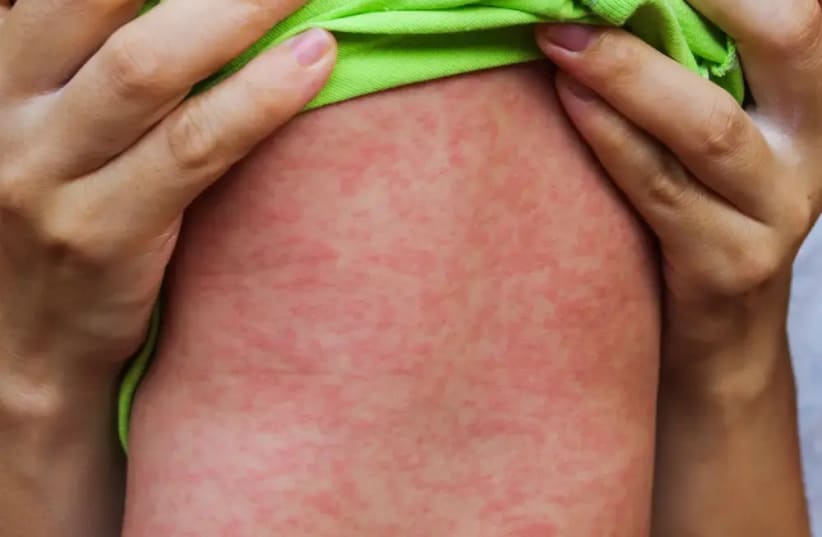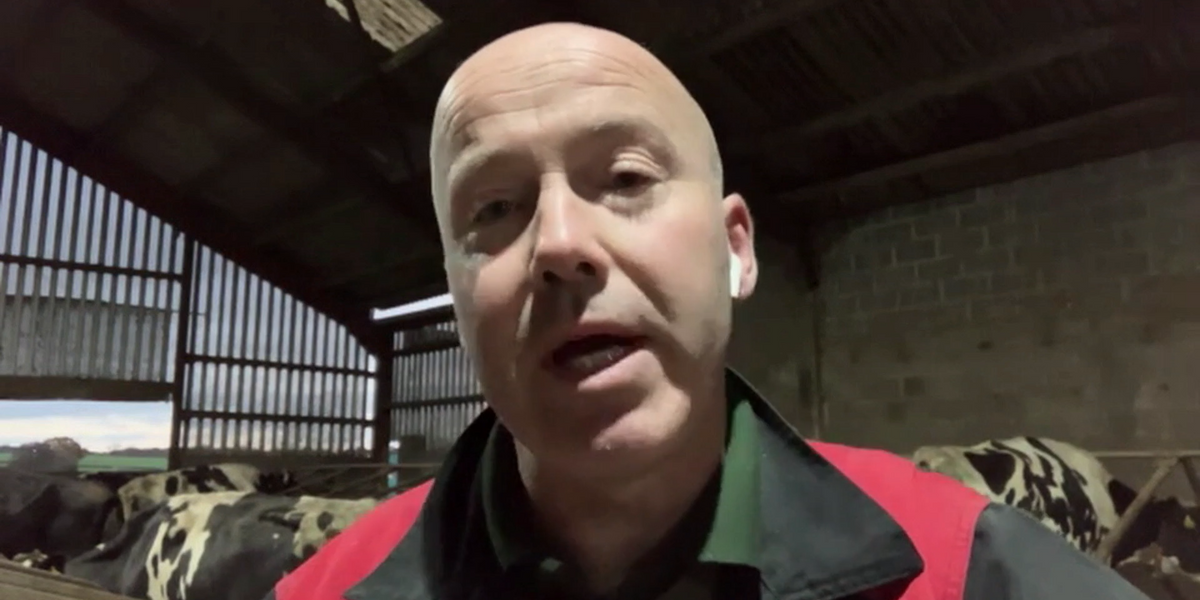In 2023, 10.3 million measles cases were reported globally, marking a 20% increase from the previous year. The WHO attributes this rise to insufficient vaccination coverage, leading to outbreaks.
By DR. ITAY GAL NOVEMBER 17, 2024 13:42 Highly contagious disease. Child with measles.
(photo credit: SHUTTERSTOCK)
Highly contagious disease. Child with measles.
(photo credit: SHUTTERSTOCK)
The global measles outbreak continues unabated. In 2023, the number of reported measles cases surged by 20%, reaching 10.3 million globally, according to estimates by the World Health Organization (WHO) and the US Centers for Disease Control and Prevention (CDC). This increase is directly linked to insufficient vaccination coverage worldwide.
Reports indicate that over 22 million children missed their first dose of the measles vaccine last year, and only 74% received the recommended second dose.
Measles, one of the most contagious viruses known to humanity, is preventable through a simple vaccine. The WHO stresses that at least 95% coverage with two doses is required in every country and community to prevent outbreaks and protect populations. However, data reveals that global vaccination rates fall short of this target, leaving millions of children vulnerable to contracting the disease, which can lead to severe complications and even death.
In 2023, 57 countries experienced large measles outbreaks or significant disruptions in prevention efforts, a nearly 60% increase from 36 countries in 2022. Regions such as Africa, the Middle East, Southeast Asia, and Europe saw sharp rises in cases. Nearly half of severe cases occurred in Africa, where vaccination rates remain particularly low.
Despite a slight reduction in mortality rates (8%) in 2023, measles claimed 107,500 lives, most of them children under the age of five. Countries with more advanced healthcare systems managed to reduce mortality rates thanks to better access to medical care and adequate nutrition.
Rising cases of measles in Israel
Israel has also recorded a troubling rise in measles cases, primarily among unvaccinated populations. The most significant outbreaks have been reported in Jerusalem and Beit Shemesh, especially among Haredi communities with low vaccination rates. Additionally, numerous cases have been observed in Bedouin communities in the south, where access to healthcare and vaccines remains limited.
The Health Ministry has implemented several measures to raise awareness, including targeted vaccination campaigns for at-risk populations. However, significant challenges remain, particularly when addressing groups with limited access or strong anti-vaccination sentiments.
Measles is among the world's deadliest diseases but also one of the most preventable. The measles vaccine, available for over 50 years, has saved millions of lives and remains the most effective means of preventing the disease's spread. However, the WHO warns that the global goal of eradicating measles by 2030 is at risk due to partial vaccination coverage.
The WHO's message is clear: every country must take action to increase vaccination coverage, strengthen outbreak monitoring systems, and ensure that every child receives both required doses of the vaccine.

 By The Jerusalem Post (World News) | Created at 2024-11-17 11:50:08 | Updated at 2024-11-17 13:20:05
1 hour ago
By The Jerusalem Post (World News) | Created at 2024-11-17 11:50:08 | Updated at 2024-11-17 13:20:05
1 hour ago








